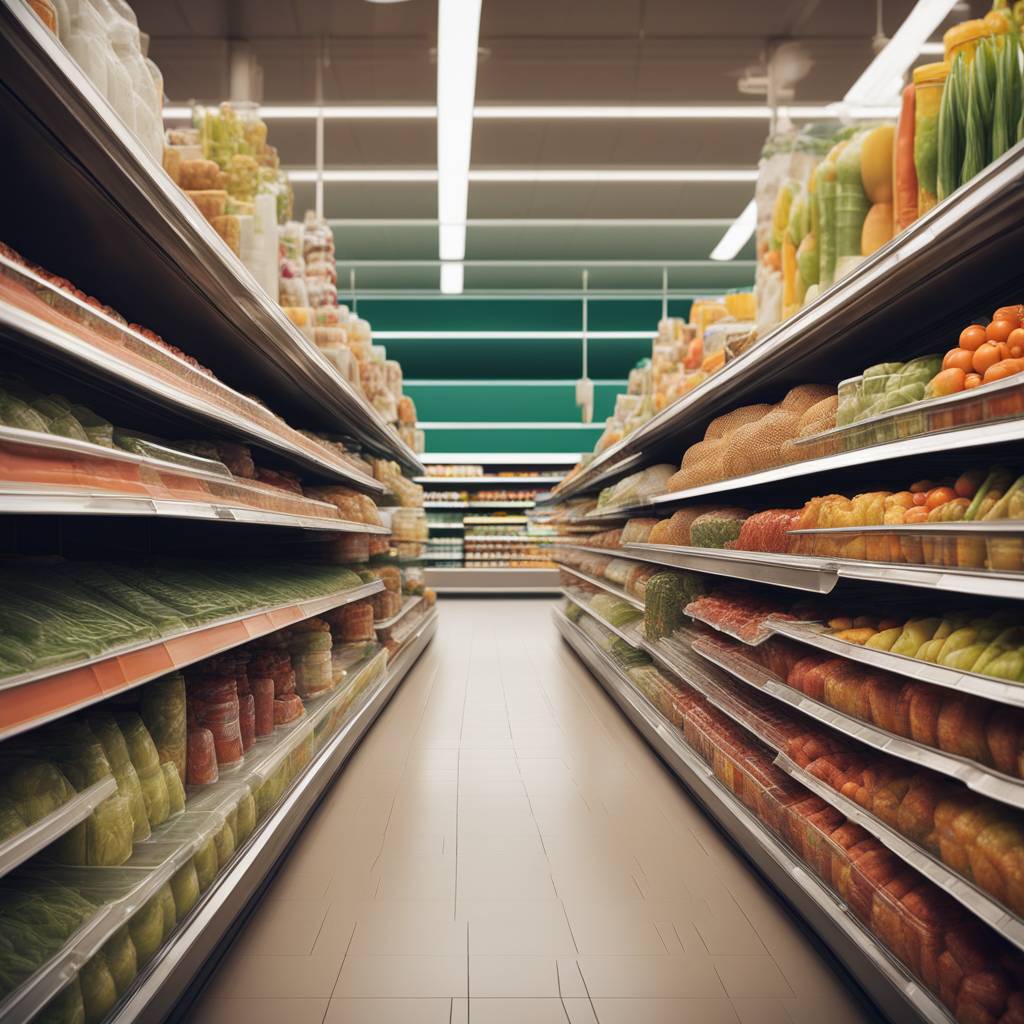Recently, supermarket shelves in Australia have been left bare due to supply chain issues, causing concerns for consumers. Both Coles and Woolworths, two major supermarket chains in the country, have reassured customers that they are working diligently to restock their shelves in the coming days. The shortage of products on the shelves has been attributed to various factors within the supply chain, including transportation delays and disruptions, labor shortages, and increased demand from panic buying. Despite these challenges, the supermarkets have stated that they are committed to providing a full restock of their products to meet the needs of their customers.
The supply chain issues causing supermarket shelves to be bare have prompted both Coles and Woolworths to work on finding solutions to address the shortages. Transportation delays and disruptions have been a major factor contributing to the problem, with delays in the delivery of goods affecting the availability of products in stores. Additionally, labor shortages have played a role in the supply chain issues, as the availability of workers for manufacturing, packaging, and distribution has been affected by various factors such as illness, quarantine measures, and logistical challenges. The increased demand from panic buying has further strained the supply chain, as consumers rush to stock up on essential items in response to uncertainties and concerns about the future.
In response to the supply chain issues, both Coles and Woolworths have promised customers that they are working diligently to restock their shelves with essential items. The supermarket chains have reassured consumers that they are committed to providing a full restock of their products in the coming days, despite the challenges they are facing. Coles and Woolworths have emphasized the importance of working together with their suppliers and partners to overcome the supply chain disruptions and ensure the availability of products for their customers. By collaborating with stakeholders and implementing strategies to address the root causes of the issue, the supermarkets are aiming to minimize the impact of the shortages on consumers and restore normalcy to their operations.
The supply chain issues affecting supermarket shelves have highlighted the vulnerabilities and complexities of the global supply chain, especially in times of crisis. The COVID-19 pandemic has exposed weaknesses in the supply chain, impacting the availability of essential goods and prompting disruptions in the flow of products from manufacturers to retailers. The reliance on interconnected networks of suppliers, transporters, and distributors has made it challenging to respond effectively to sudden changes and disruptions in the supply chain, leading to delays and shortages in the availability of products. As a result, companies such as Coles and Woolworths have been forced to adapt quickly and collaborate with their partners to address the challenges and ensure the continuity of their operations.
Despite the challenges and uncertainties posed by the supply chain issues, Coles and Woolworths have remained committed to serving their customers and meeting the demand for essential products. The supermarket chains have proactively communicated with consumers about the situation and provided updates on their efforts to restock their shelves with essential items. By keeping customers informed and reassuring them of their commitment to addressing the supply chain issues, Coles and Woolworths have managed to maintain trust and confidence among their customer base during this challenging time. Through effective communication, collaboration with stakeholders, and a focus on finding solutions to the root causes of the problem, the supermarkets have demonstrated resilience and adaptability in responding to the supply chain disruptions and ensuring the availability of products for their customers.
In conclusion, the supply chain issues affecting supermarket shelves in Australia have underscored the importance of a resilient and adaptable supply chain system in times of crisis. Coles and Woolworths have faced challenges in restocking their shelves due to transportation delays, labor shortages, and increased demand from panic buying. However, through their proactive efforts to address the root causes of the supply chain issues, collaborate with partners, and communicate effectively with customers, the supermarket chains have demonstrated their commitment to serving their customers and ensuring the availability of essential products. As they work to overcome the challenges posed by the disruptions in the supply chain, Coles and Woolworths are striving to restore normalcy to their operations and minimize the impact of the shortages on consumers. By learning from the lessons of the current situation and strengthening their supply chain resilience, the supermarkets are positioning themselves to better respond to future challenges and uncertainties in the supply chain.


